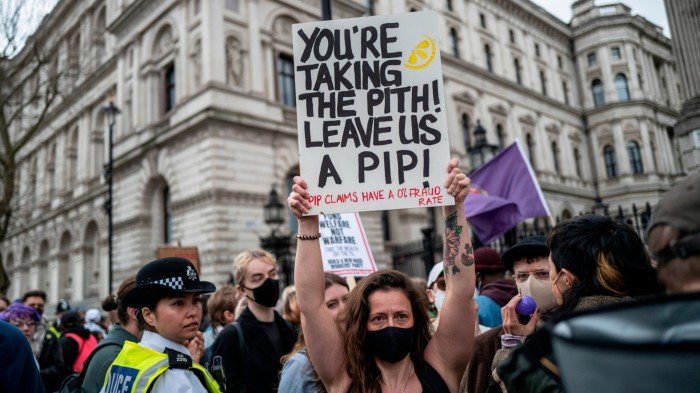Unlock the Editor’s Digest for free
Roula Khalaf, Editor of the FT, selects her favourite stories in this weekly newsletter.
A quarter of a million people, including 50,000 children, will be pushed into relative poverty as a result of Sir Keir Starmer’s welfare reforms, according to an impact assessment published by the government on Wednesday.
The government also estimates that about 800,000 people will lose out on disability benefits, also known as personal independence payments (Pip), with individuals set to lose an average of £4,500 a year by 2029-30.
Last week, work and pensions secretary Liz Kendall unveiled a package of sweeping welfare reforms that included tightening eligibility for Pip and slashing the highest rate of incapacity benefit in half, which sparked a backlash from backbench Labour MPs.
However, her announcement did not include the impact assessment that shows how many people will be affected by the measures.
Those figures, published on Wednesday alongside Rachel Reeves’ Spring Statement, show about 370,000 people who are currently in receipt of disability benefits will no longer get them when they are reassessed. Close to half a million future claimants will no longer be entitled to them as well, it added.
Meanwhile, around 2.25mn people currently in receipt of incapacity benefits, known as universal credit, will be impacted by the freeze on rates, losing on average £500 a year.
Additionally, three quarters of a million future recipients of the benefit will lose out on about £3,000 a year because of the government’s decision to slash the benefit entitlement in half for new claimants, it added.
The UK government defines relative poverty as households whose income is below 60 per cent of the median income.
Starmer had hoped the changes announced last week would generate about £5bn in savings per year by the end of the forecast period, but the Office for Budget Responsibility has refused to “score” many of the proposed changes, claiming that the government had not provided sufficient detail about the policy proposals.
The tussle created political disarray just hours before the chancellor set out her Spring Statement.
Kendall was forced to find emergency additional cuts, including a freeze to the rate of incapacity benefits, leading to increased anger from MPs who had been reassured that the welfare reforms were not purely a cost-cutting drive.
“It all looks like a shambles,” said one person briefed on the preparations of the statement. “It has been pretty chaotic.”
The OBR on Wednesday estimated that the total package of measures on welfare will save just £3.4bn by 2029-30, after factoring in new spending on job support and the administration of the welfare system — although it stressed that its estimates were highly uncertain.
The fiscal watchdog said this figure for net savings includes a £3bn cut to spending on incapacity benefits — from which it has deducted the £1.6bn that would have been saved by previous Conservative reforms that the current government has scrapped.
It also includes a reduction of £4.1bn in spending on disability benefits. Meanwhile, the more generous rate of jobless benefit will add £1.8bn to spending by 2029-30.
However, the OBR has not yet tried to assess whether the changes to financial incentives, and the stepping up of job support, will bring more sick and disabled people into work in the long term.
It said there was not yet enough detail on the policy plans to form a view, but noted that the people concerned “generally have restricted capacity to work and may have been out of the labour market for some time”.


